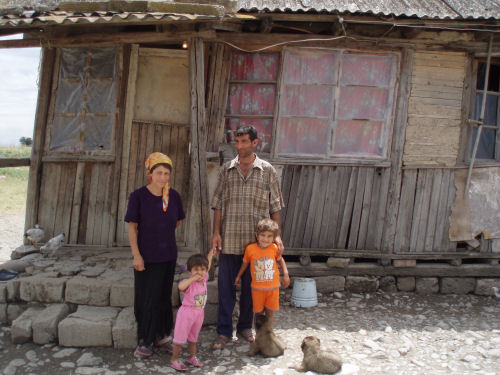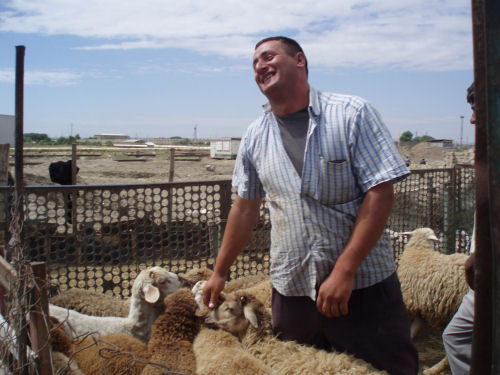
Walking with a NorMicro loan officer through a small town bazaar in Azerbaijan is like walking with a pop star through a suburban American shopping mall. In Devechi, Nafira was mobbed by dozens of prospective clients as she led me through the crowded market stalls in search of Kiva clients. As he helped translate my interviews in Agsu, Namik often had to field questions from clients about the likelihood of their friend or neighbor getting a loan. The weekly “reception day” in each NorMicro branch office – that is, the day when clients make payments, drop off applications, and just stop by to chat – creates a constant stream of dozens of clients passing through the offices. In many small Azerbaijani towns, the only banking institutions interested in serving the low-income population are a handful of small MFIs. Many of the clients I met enthusiastically expressed their gratitude at having access to these micro banking services – without NorMicro and similar MFIs, they would have no way to improve their businesses and their families’ situations.
In the early nineties, Azerbaijan got hit with an economic double-whammy: the simultaneous collapse of the Soviet Union and the war with Armenia over Nagorno-Karabakh. Under the Soviet system, subsidies prevented extreme poverty and the huge bureaucracy created many government jobs. A uniformly mediocre standard of living existed across the Soviet Republics. The fall of the U.S.S.R. resulted in the loss of this government-strung safety net, leaving many Azerbaijanis jobless and without government subsidies to pick up the slack as the country transitioned from command to market economy. Throw nearly 700,000 citizens (10% of the population) displaced by the Armenian occupation of Nagorno-Karabakh, and a full-out economic crisis was created.
Fast-forward fourteen years later and most of the 700,000 IDPs are still living in “temporary” housing while the government has turned its attention to the country’s oil reserves. This “resource curse” has left much of the population oscillating between a meager sustainable existence and extreme poverty, despite the oil revenues supposedly flooding into the country (reference Venezuela and Nigeria). What infrastructure did exist in the Soviet days is deteriorating and health care, roads, electricity, water, and sewage systems are substandard and unreliable in much of the country. Politics-driven policies have prevented the IDPs from fully-integrating into their new communities, and many live isolated in abject poverty even in the shadows of Baku’s oil mansions.
Hang with me while I get even more technical for a minute. Statistics indicate that 49% of Azerbaijanis live below the poverty line, and up to 85% earn very low wages and live at very low standards. Inflation is 8%, ranking Azerbaijan 170 out of 224 countries. The Azerbaijani government officially classifies unemployment at 1.2% (or the fifth lowest unemployment rate in the world), an implausibly low statistic which brings me to the topic of corruption. Azerbaijan is in an eight-way tie for the 130th most corrupt nation (out of 160) on the Transparency International 2006 Corruption Perception Index.
The Azerbaijani microfinance industry stands out as the single beacon of honesty and goodwill in a country where corruption is deeply ingrained in government services. The clients appreciate the fact that when they apply for loans through MFIs they do not have to pay the hefty “application fee” (known elsewhere as a bribe!) that they must pay at other banking institutions. The MFIs, with international assistance, are motivated by a sense of national pride and concern for their countrymen, and have thus far kept the industry free of the pervasive corruption found in other sectors of society. Microfinance resources are in very high demand throughout Azerbaijan, as IDPs and other low income individuals work to gain footing in the emerging market economy. Many IDPs, like Mashuga Ismayilova, fled during the war, leaving behind their homes, possessions, and jobs. They have had to pick up new livelihoods and often still live in squalid conditions, like Devran Ibishov. But with the aid of small business loans they try and often succeed, like Khagani Nuruyev, in improving their situations. Azerbaijan has enormous potential, but the poor working-class Azerbaijanis need a helping hand to set progress in motion.
/>
















